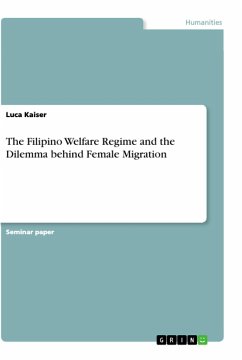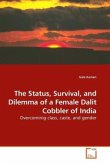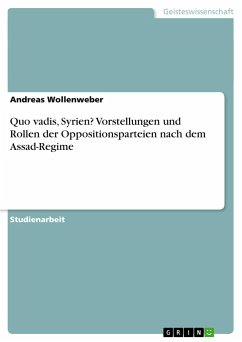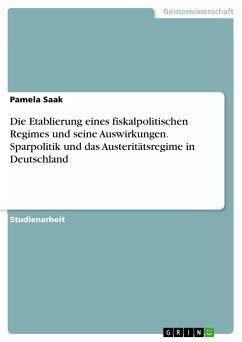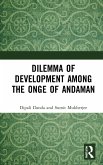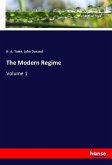Seminar paper from the year 2014 in the subject Social Studies (General), grade: 1,0 (A+), , language: English, abstract: A "welfare regime" refers to different sets of institutional arrangements governing welfare and its stratification effects. Different categories of a country's population can experience different welfare regimes. This paper analyses the Filipino welfare regime with regard to female labor migration, which, in terms of its scope and importance for the Filipino economy, is unique. Taking Wood and Gough's (2006) framework for welfare regimes and the notion that any kind of welfare outcomes are created within the sphere of the welfare mix, the paper explores the interrelation of institutional conditions and different systems of the welfare mix and its implications on the welfare of female migrants and their kinship.This framework extends the fundamental ideas of the welfare mix to the phenomenon of female migration in the Philippines which allows for the exhibitionof failures of the Filipino welfare regime and illustrates how these failures preserve female labor migration, negatively affecting the subjective wellbeing of Filipina migrants and their relatives.The focus lies on female migrants engaged in domestic work not only due to its rampant extent in the Philippines but also due to the fact that, based on the global gender division of labor, the feminization of caregiving has crucial implications on social welfare regimes and societies' wellbeing. Domestic work is one of the main sources of labor export and constitutes other major female migration occupational groups such as cooks, caregivers, and nurses, which are often only distinguished in the sending country but are diluted in recipient countries where the task of domestic work includes most of these tasks, independent of the employment status. Nonetheless, to a large extent, the findings of this paper could generally be extended to other Filipino migrants in low-skill occupations as well.
Hinweis: Dieser Artikel kann nur an eine deutsche Lieferadresse ausgeliefert werden.
Hinweis: Dieser Artikel kann nur an eine deutsche Lieferadresse ausgeliefert werden.

